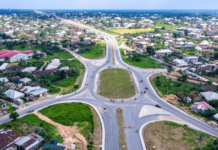In recent years, the popularity of Brazilian Butt Lift (BBL) surgeries has surged globally, and Nigeria is no exception. This trend reflects broader societal pressures and the influence of social media, where idealized body shapes are often celebrated.
However, the rising number of BBL procedures in Nigeria has sparked significant public health concerns due to the associated risks and the lack of regulation in the cosmetic surgery industry.
BBL surgeries involve the transfer of fat from other parts of the body to the buttocks to create a fuller and more sculpted appearance. This procedure has become particularly popular among Nigerian women, driven by the desire to achieve certain beauty standards.
Social media influencers and celebrities often promote the results of these surgeries, contributing to their growing demand.
The Nigerian cosmetic surgery industry faces numerous challenges, primarily due to inadequate regulation and oversight. Many clinics operate without proper accreditation, and some practitioners lack the necessary qualifications and experience.
This environment increases the risk of substandard care and poor outcomes for patients.
Additionally, the high cost of BBL procedures in reputable clinics drives some individuals to seek cheaper alternatives, often in less safe environments.
These “backstreet” surgeries significantly increase the likelihood of complications.
Health Risks Associated with BBL
Despite its popularity, BBL is considered one of the most dangerous cosmetic surgeries.

The procedure carries several significant risks, including:
1. Fat Embolism: One of the most severe complications is fat embolism, where fat enters the bloodstream and travels to the lungs or brain, which can be fatal.
2. Infection: As with any surgery, there is a risk of infection, which can be aggravated by unsanitary conditions and unqualified practitioners.
3. Anesthesia Complications: Adverse reactions to anesthesia can occur, leading to serious health issues or death.
4. Post-Surgical Complications: These include excessive bleeding, deep vein thrombosis, and necrosis of the fat cells.
The rise of BBL procedures in Nigeria poses a substantial public health concern.
The potential for life-threatening complications necessitates urgent attention from health authorities. There is a pressing need for stricter regulations and better enforcement to ensure that cosmetic surgeries are performed safely and by qualified professionals.




